Health Alert: Why menopause matters to everyone
and live on Freeview channel 276
Whether you are a woman facing mid-life changes, her partner, her children or her employer, she stresses it's important to understand the health and wellbeing issues women may have at this time - and the help and self-help which is available.
She believes schools should be teaching about menopause on the curriculum and employers should be alert to the need to adapt workplace arrangements to help their female workers.
Advertisement
Hide AdAdvertisement
Hide AdDr Craven said: "Menopause should form part of high school education curriculum, partly to prepare girls and boys for what will come and to discuss the health and life-style issues and partly because the mothers of high school children are likely to be going through the process and it impacts on the whole family."
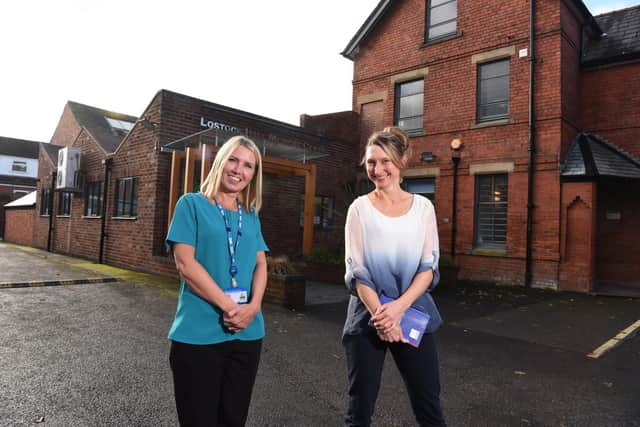

In 2019 the surgery hosted a chat session, called Menopause Lounge, with an expert panel sharing information about treatment options, alternative strategies for coping and evidence from current research about the menopause. More than 80 people attended.
Recently Dr Craven did an online question and answer session with 241 HMRC staff across the country and has also addressed staff in an online session at UCLan. Next week she will be talking to doctors and nurses about improving menopause health care. For Dr Craven it is not just a health issue but an equality issue too.
She said: "I've always had a big interest in women's health. I just believe women should have information. They should be empowered to speak about these things."
Advertisement
Hide AdAdvertisement
Hide AdHer experience as a practitioner has taught her understanding and reassurance are key: "To have women say I think I'm going mad. No you're not. Your hormones are playing up - it's feeling understood which we all really want. I've had quite a few patients come in and say I feel like I'm dying when they first come in. I think I'm crazy."
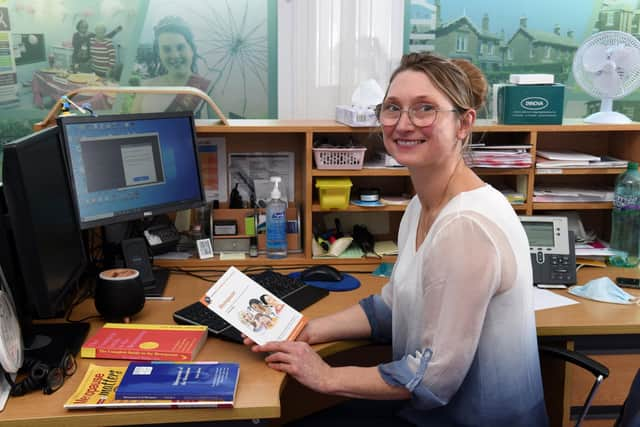

Now the surgery has gone one step further in its bid to share knowledge and appointed Reception Team Leader Anita Turner as a Menopause Awareness Champion/Ambassasdor to assist Dr Craven.
Anita said: "I feel very passionate about being able to offer support to staff particularly about the menopause ...there's definitely a support network needed in the workplace. I feel very honoured to offer that suppport."
The Government recently announced plans to massively reduce prescription charges for HRT and Dr Craven welcomed the move and the public discussion of the changes.
Advertisement
Hide AdAdvertisement
Hide AdDr Craven is 48 and looks forward to the day when women are not embarrassed to mention menopausal symptoms to their partners, employers and children. She has recently gained an advanced certificate in menopause (studies) and pays tribute to the support she received from nationally acclaimed expert Dr Paula Briggs. She was able to attend Dr Briggs' clinics at Southport Hospital. Dr Briggs now works at Liverpool Women's Hospital.
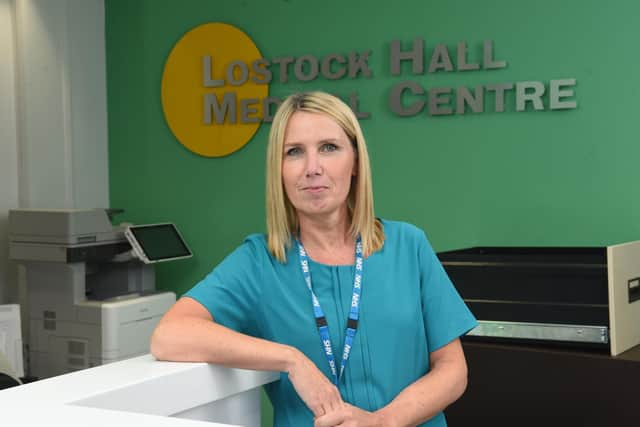

Her studies made her realise that wide-ranging symptoms women have can be linked to different stages of the menopause as the body seeks to accommodate to a reduction in female hormones. The reason is, says Dr Craven, because the oestrogen receptors are in many parts of the body, not just the genital area and are impacted by the steep decline in oestrogen production which comes with menopause.
She said :"It's understanding this transition is a whole spectrum and understanding its effect on women's health and their functioning in organisations and family as mothers, daughters, employees. Sometimes women have very powerful jobs, going through the transition sometimes it's very hard to hold things together."
Mood swings, irritability, low mood, joint pain, muscle aches, the effect on libido and relationships, vaginal dryness and urinary symptoms, hot flushes and night sweats and "awful insomnia" , dry skin and brain fog can all take their toll, she acknowledges. Some women will escape more lightly than others and readers will be pleased to know, women don't automatically get all those conditions, maybe just a few.
Advertisement
Hide AdAdvertisement
Hide AdRegarding the menopause, yes she says, HRT (Hormone Replacement Therapy) can be helpful but not for everyone, but so too can changes in lifestyle, relaxation techniques, cognitive behavioural therapy, exercise and reassurance.
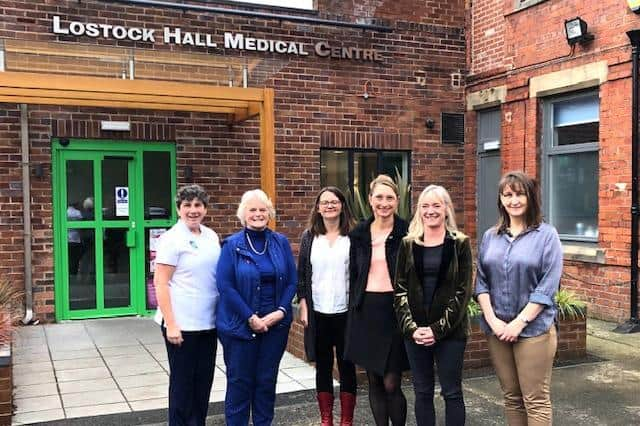

Knowledge is power too when it comes to navigating a healthier path to older age, with a need to be aware of the menopause's implications for future bone strength and risk of osteoporosis, future frailty and loss of independence. By contrast early intervention, with, for example, HRT if appropriate and attention to nutrition and exercise can be valuable. Some women may be in the perimenopause (pre-menopause) stage in their early 40s and not even realise it. Women should think "What can I do now to make my quality of life better?" said Dr Craven, who says there is much information available about the menopause including the website Henpecked. .
Many people do not realise symptoms can continue and Dr Craven recalls seeing a women in her 70s who still had hot flushes.
Anita, 53, says the practice now has a policy of supporting staff with menopause and if adaptations can be made to the workplace to help so much the better:"People can change uniforms, we can look at additional uniforms, work stations, we might be able to move them closer to a window, possibly there's a fan, or maybe it's breaks to give them a bit of respite. I think if staff feel they are understood what you get back from them is rewarding."
Advertisement
Hide AdAdvertisement
Hide AdIt makes business sense too as greater staff loyalty and reduced sickness absence make for a better functioning workplace.
Dr Craven said: "There's no running away from it. We are all becoming more aware ...The message is really value your female workers. If you increase the wellbeing of female workers... that will make people feel better and it's better for the organisation "
FACTFILE
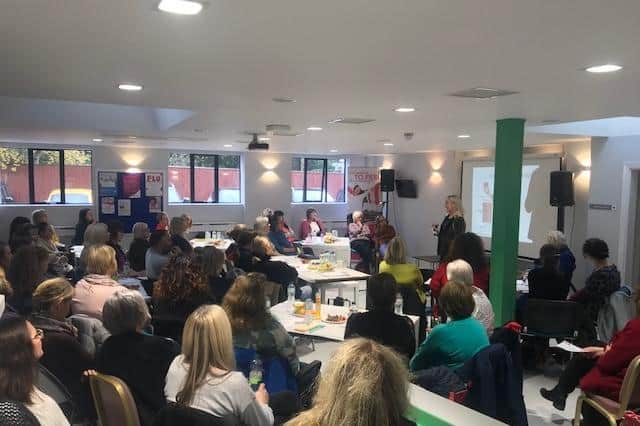

Menopause, when a woman stops having periods and can no longer get pregnant naturally, usually occurs between the age of 45 and 55 as a woman's oestrogen levels decline and the balance of the body's sex hormones changes. Premature menopause can occur earlier.
For information from the Henpicked website see here .For information from the NHS website on menopause see here .
Advertisement
Hide AdAdvertisement
Hide Ad* The Lancashire Post is more reliant than ever on you taking out a digital subscription to support our journalism. For unlimited access to Lancashire news and information online, you can subscribe here.